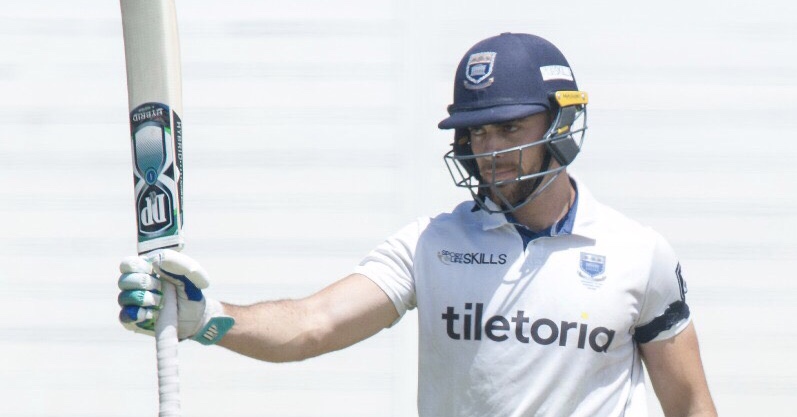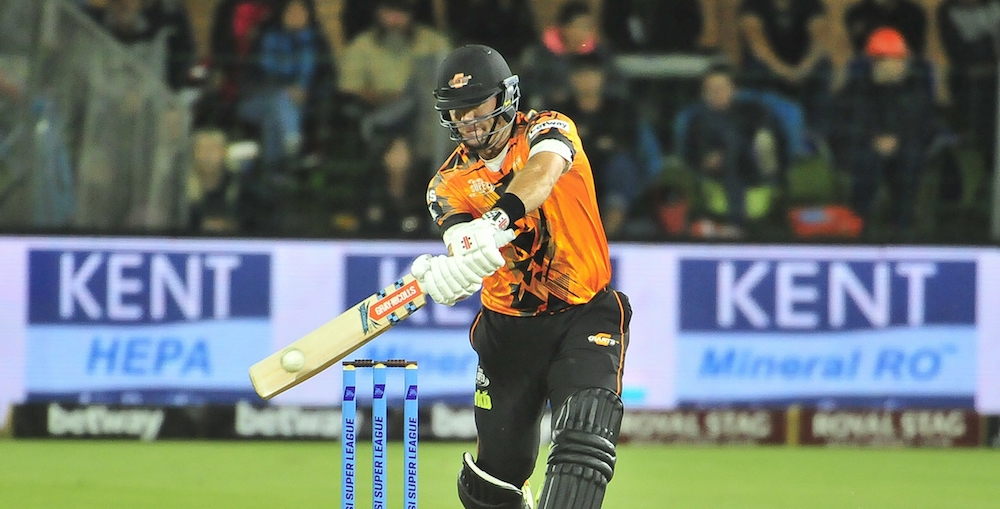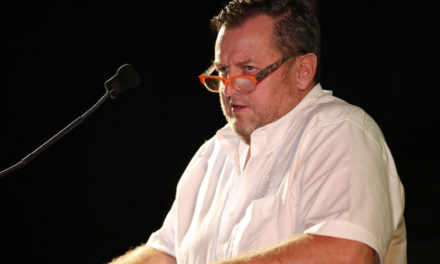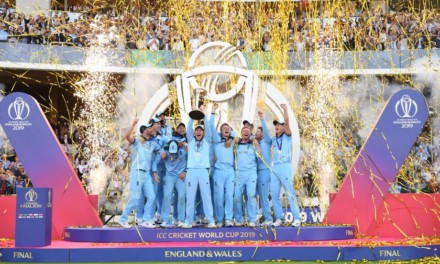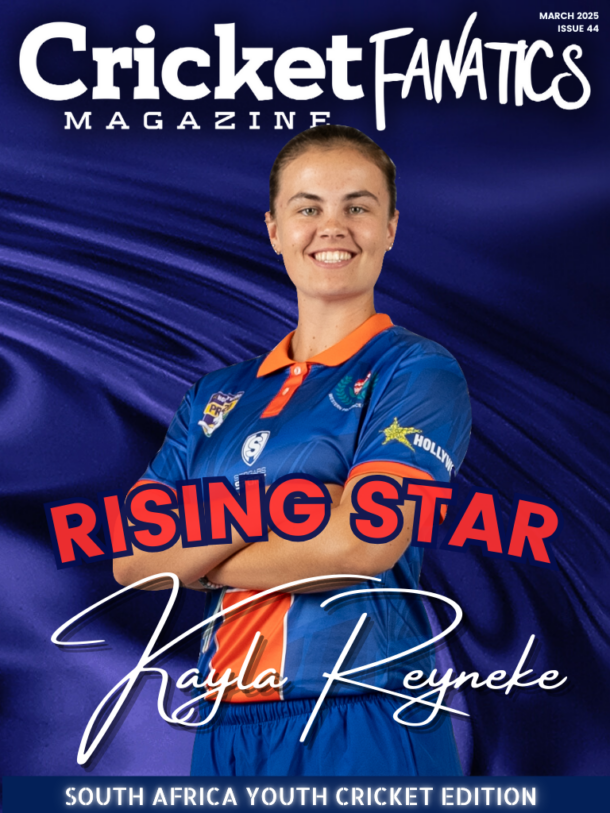Nabeelah Fakier chatted to Givon Christian about varsity cricket, club cricket, provincial cricket and playing overseas in an exclusive Q&A.
Christian is a Wynberg Boys’ High School alumnus and batsman for both The University of the Western Cape Cricket Club and Western Province.
He made his Western Province First-Class debut in 2012, playing one season for the men’s senior side, leaving the same year to play in Ireland.
In 2013-2015 he was in central London playing in the Middlesex League. In 2016 he played in the Cheshire County Cricket League, and in 2017 he played one season in Ireland.
Since then he joined UWC and was reintroduced into Western Province Mens’ senior first-class side and is back with his second season for WP’s first-class side.
How do you balance training for both UWC and WP?
So balancing the training between UWC and WP can be a bit tricky, especially in the season as WP trains in the morning and UWC trains in the afternoon. There are obviously a lot of matches that are played in the season. We get advised and are monitored. This is to prevent over-training, burning out or overworking ourselves leading into games.
It is tough because I have to make the decision on where I’m going to be training, because I cannot attend all the sessions everyday and added to that the lectures I’ll have to miss or be at – So I usually attend the WP training sessions in the mornings and have one-on-one sessions with one of the coaches who I’ll meet up with from UWC, and train any alternative day when they’re available.
I try to attend at least one of the two UWC squad training sessions in the afternoons. It can be a bit overwhelming at times, but at the same time we want to be pushing ourselves and all cricketers playing first-class cricket should be aspiring to play for higher honours and the end goal for your national team. Therefore we have to make sure we’re putting in the hard work and putting in the time and effort.
Psychologically, how do you manage to stay on top of things – playing for both squads, studying and balance that with other aspects in your life?
Psychologically it can be a bit tough when playing for your Province, there’s a lot of expectation on you to perform and your spot is never guaranteed in the side. When you’re playing for your Province, I would say there’s more of a demand, more of an expectation, you have to be at the top of your game all the time, there’s no room for errors.
UWC provides sports psychologists that we see once a month and Western Province Union have sports psychologists available for that, but at UWC it’s mandatory that you go once a month just for a debrief to see how things are and how you’re handling everything with studies and playing sports.
A big factor for myself is also my faith and the friends who I spend time with from church, it’s like a stress reliever from the high expectations from cricket.
Are there any difficulties you face as a club cricketer?
I wouldn’t say there are any major difficulties, but obviously, there are issues that do get presented to me. There’s obviously more of an expectation when I play club cricket, to perform more consistently and also sometimes you can become a bit of a target for rival clubs, they tend to have a harder go at you, in the sense that they would maybe chirp you more and try to get in your head, and try to win that mental battle over you. These players are players who are fighting for the same spot I have, so why would they want to make it easy for me when I’m playing against them?
At the end of the day, no one is guaranteed a spot in a team, so it’s a constant battle when we play each other in club matches.
Are there enough opportunities for club cricketers to take it to the next level and become provincial players?
I think every club cricketer does get a fair opportunity. Your selection for the WP first-class side will be based on your consistency of performances, so if you are consistent and performing well at club level you will get recognized.
At the end of the day, it’s a stats game and no one is going to be selected based on who they think a player can be, you need to be producing runs, taking wickets and doing that consistently in order to be given an opportunity. I think that the WPCA has handled it as best they can in the past few years.
How difficult is the transition from club cricket to provincial cricket?
There’s quite a bit of a step up, the pace is a lot quicker, the players are a lot more consistent, the bowlers know their game plans and stick to it – whereas club cricket the consistency is not as great but sometimes the playing conditions of club wickets and the ground that you play on is not really ideal to play a very positive brand of cricket, whereas first-class wickets and stadiums, the wickets are a lot harder, it’s much more prepared and it will give for much more of an exciting and fair game. But either way, you have to be good enough to adapt to whichever level you are playing at.
How was it like playing overseas and what is the setup like, are there any differences between our structures and theirs?
Playing overseas was amazing, everything about playing overseas just screams professionalism. They run their club cricket and their minor counties like it is a business. Groundsmen are fully employed, there are so many sponsors that come into the club, there’s a lot of interest in local cricket in England and in Europe. I do think club cricket in South Africa can learn a lot from them, it’s not just a Saturday to pass your day by playing a sport – families come to support, everybody knows the clubs, there’s a lot of club rivalries, where that stuff are prevalent in Cape Town and South Africa.
If I were to compare it to club cricket in England, it’s much more structured, there’s more planning that goes into it. It’s as though, you’re playing in a professional side, there’s more much behind the scenes work and also a lot more funding that goes into club cricket in England.
What are their development programmes like?
Development programmes overseas are very structured. They usually have a 5-year development programme with their academy sides, which is played with the club teams and they always keep up to date with the identified or earmarked players who are coming through the system.
Once they leave junior or provincial U19 cricket, they don’t get lost in the system whereas they don’t know where they stand with their local Province, they stick with them and work very closely with them. This happens over a 5-year period, giving the player enough time to progress and move up with ranks.
What advice would you give to cricketers who are interested in playing overseas?
It is definitely a yes from me, there’s a lot that you learn, you learn so much about your game, different conditions, the number of games that you play, sometimes you can play up to 5 games in a week and that’s only going to benefit you as a player. You can train as much as you want but you learn the most when you’re out there playing in the middle, playing in the matches, having match scenarios, and also just really find out how you handle certain pressures and situations.
It moulds your character and it helps you with your decision making going forward. It’s something that I would recommend, it’s only going to benefit your game and you’ll gain a lot of experience from it.
Photo: Supplied

